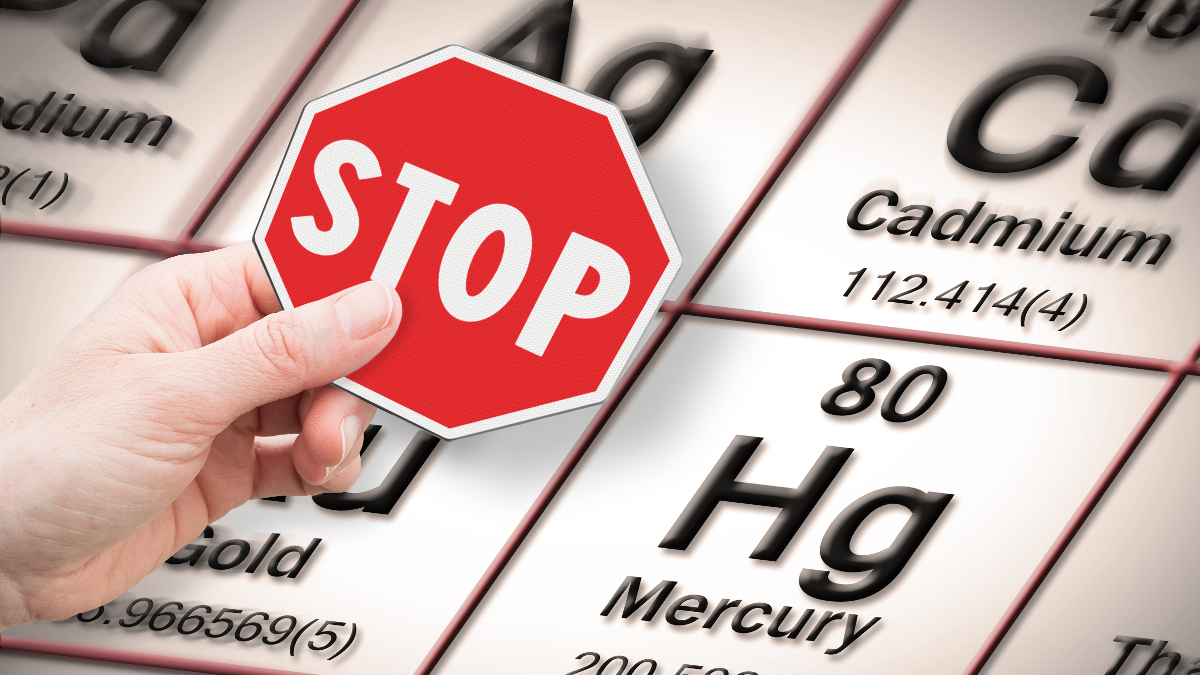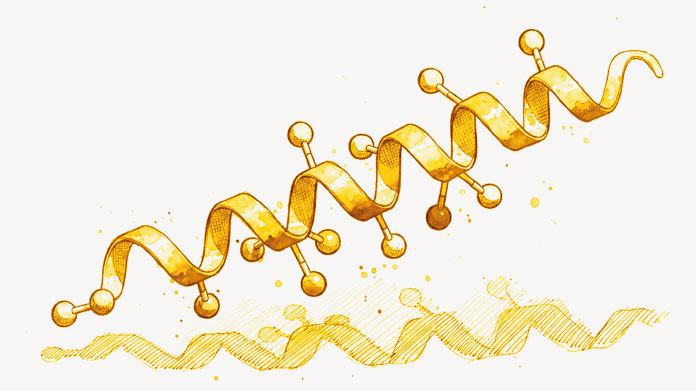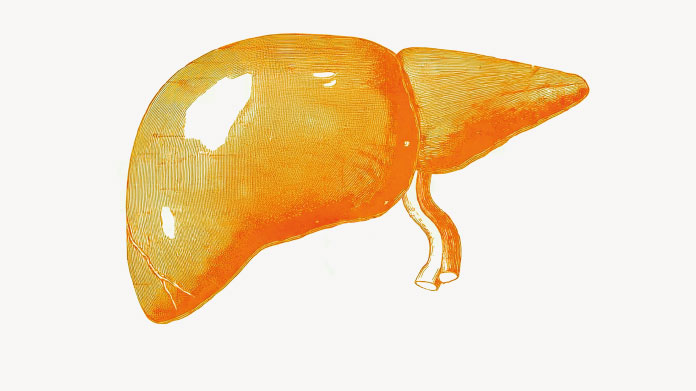Detoxifying your body with DMSA
Chelation is the process of eliminating dangerous metals such as lead, mercury and cadmium from the body. Here we look at detoxification with DMSA, one of the best chelators available.

Heavy metals: a threat to health
Metals are elements that are naturally present in the human body: we know the key role played by iron, zinc, copper…
However those known as heavy metals, including mercury, lead, cadmium, arsenic and aluminum, can be damaging to health when excessive amounts accumulate in organs.
Effects of lead, cadmium and mercury toxicity ...
Lead poisoning can cause severe mental deficiency in children (1).
Cadmium poisoning can result in damage to lungs, kidneys and bones (2). Excess mercury poses a serious risk to the nervous system as well as the digestive and immune systems, amongst others (3).
High levels of heavy metals in general may also have particularly harmful consequences for cardiovascular health, potentially increasing the risk of coronary disease or stroke (4). They may also stimulate inflammation (5) and destabilise cellular metabolism (6): a generally harmful development that poses a threat to all physiological functions.
DMSA: a powerful chelator
Chelation is the use of chelating agents to ‘catch’ the heavy metals stored in the body. Chelators can either be natural, as in the case of certain algae, or chemical.
DMSA is in the latter category - it stands for dimercaptosuccinic acid: its sulfur atoms form special bonds with the positive ions in metals. Firmly bound to DMSA, the metals are then eliminated naturally in urine.
DMSA capsules for detoxifying tissues and organs
DMSA has been found to be particularly effective at cleansing organs and tissues and thus eliminating accumulated heavy metals (7).
It has a clear advantage in that it can be easily ingested in the form of capsules, with no observed toxicity. It may, however, cause a few side-effects, affecting digestion in particular.
Consult your doctor before starting any chelation with DMSA
The oral form of DMSA is a powerful chelator. It is an invaluable aid to anyone whose health has been compromised by persistent exposure to heavy metals (try, for example, the product DMSA).
Take care though: DMSA is also a recognized drug. It’s therefore advisable to seek medical advice before taking DMSA in order to minimise any risks and unpleasant side effects.
We would also draw your attention to the properties of another compound: zeolite clinoptilolite, a natural mineral extracted from volcanoes.
References
- Saturnisme. Inserm, mis à jour en août 2019. Consulté en Mars 2020.
- P. Andujar, L. Bensefa-Colas, A. Descatha, Intoxication aiguë et chronique au cadmium, La Revue de Médecine Interne, Volume 31, Issue 2, 2010, Pages 107-115.
- Mercure et santé. OMS, mis à jour en mars 2017. Consulté en mars 2020.
- Chowdhury Rajiv, Ramond Anna, O’Keeffe Linda M, Shahzad Sara, Kunutsor Setor K, Muka Taulant et al. Environmental toxic metal contaminants and risk of cardiovascular disease: systematic review and meta-analysis BMJ 2018; 362.
- Alissa EM, Ferns GA. Heavy metal poisoning and cardiovascular disease. J Toxicol. 2011;2011:870125.
- Klaudia Jomova, Marian Valko, Advances in metal-induced oxidative stress and human disease, Toxicology, Volume 283, Issues 2–3, 2011, Pages 65-87.
- H. Vasken Aposhian, DMSA and DMPS water soluble antidotes for heavy metal poisoning. Ann. Rev. Pharmacol. ToxicoL 1983. 23;193-21S
Keywords
5 Days
great products and prices
great products and prices
Marie
11 Days
Easy to navigate site
Easy to navigate site, had what I was searching for, good price. easy order-check out
James Tucker
17 Days
My skin is clearing up nicely!
Pretty good for my skin so far.
Christian
19 Days
The new packaging is excellent
The new packaging is excellent - finally! No more squashed boxes and torn envelopes.
GORAN
20 Days
Great Product
Great Product
Larry Garrett
25 Days
Quick shipping
Quick shipping; good price. No issues!
Mary McCarty
26 Days
Thr product is very good and is helping…
Thr product is very good and is helping me on my health. Then is always on time
LUGO Luz
29 Days
Buying was fine
Buying was fine. I had problems with the website not recognizing my login info, and had to call to get it fixed. Other than that, everything was good.
David S. Clark
29 Days
Your super maca and super ginseng are…phenomenal
Your super maca and super ginseng are phenomenal supplements that compliment each other when taking them together. Fantastic feeling of well-being and lots of mid day energy without the crash.
Keith Mason
32 Days
I have had amazing results with every…
I have had amazing results with every supplement I've purchased. I am extremely satisfied with this company
kirstin Torres
32 Days
Fine products
Fine products . They are on the leading edge of online supplements. The only issue -so far-is they sometime run out of subscription items.
Jason Argos
34 Days
The ordering process is very user…
The ordering process is very user friendly and the products always come in a timely manner.
CARTER Rhonda
36 Days
The price for Dr
The price for Dr. Pero's AC-11 is reasonable and in line with his views. (my former colleague). Keep it pure.
CAMPBELL Clayton
38 Days
Right on every time.
Right on every time.
Arthur Nicholas
41 Days
They are cheaper than everyone else and…
They are cheaper than everyone else and the shipping was fast. Great company.
Patricia Adams




